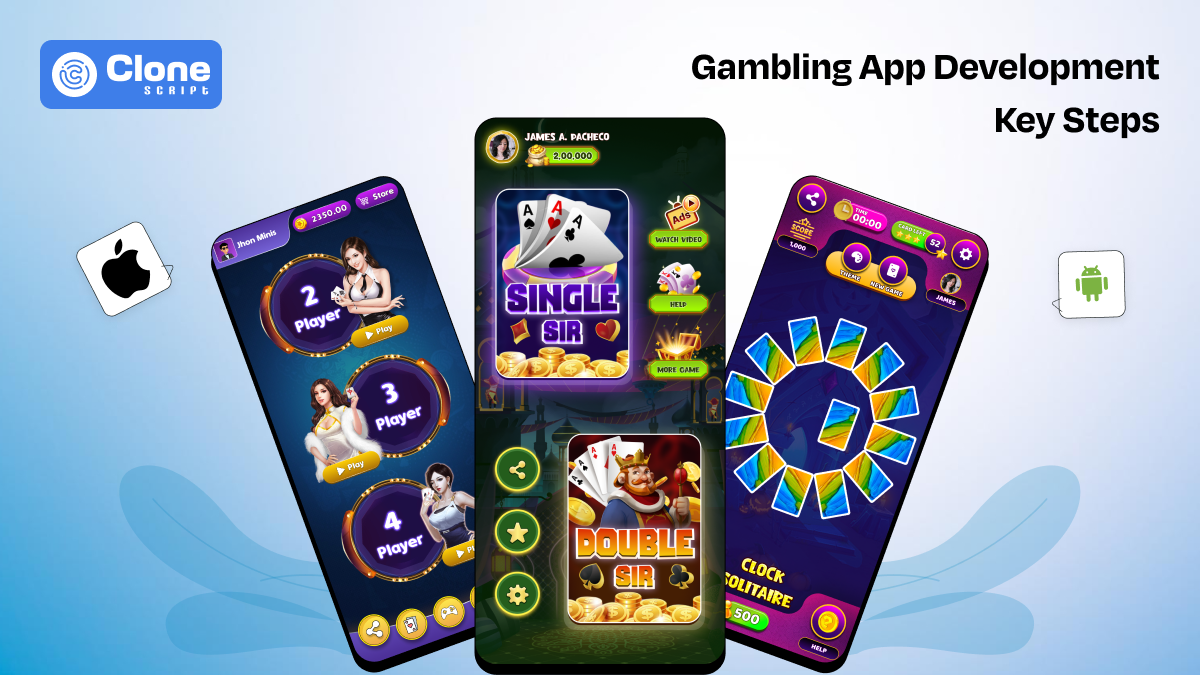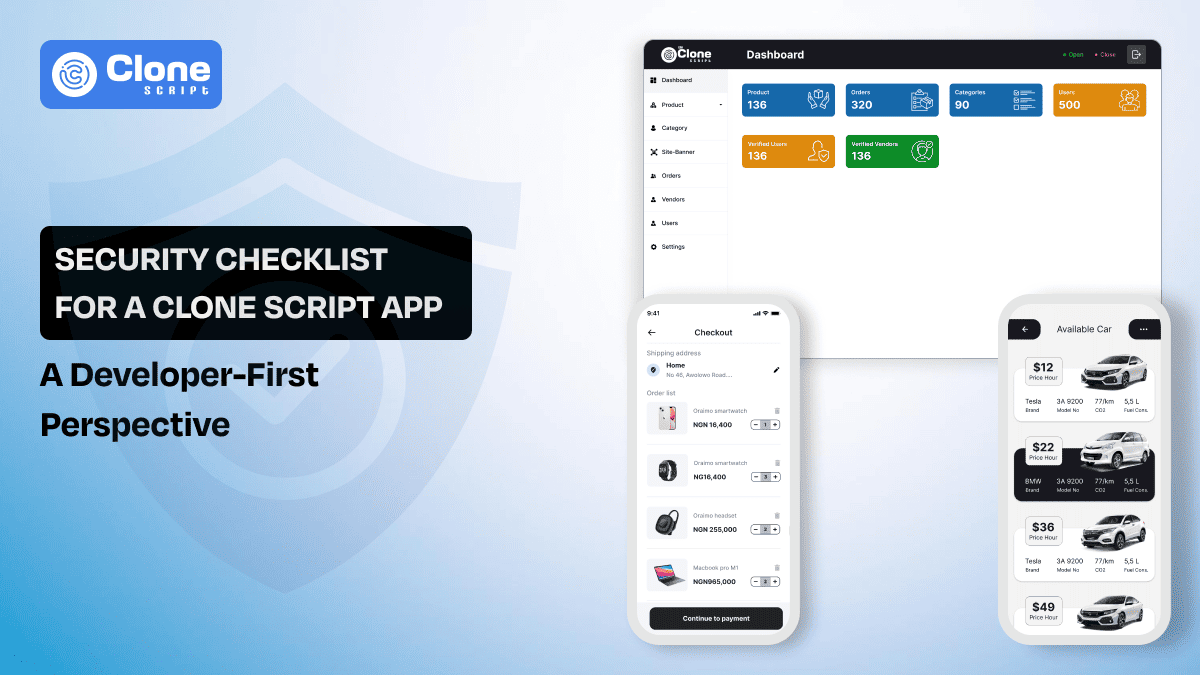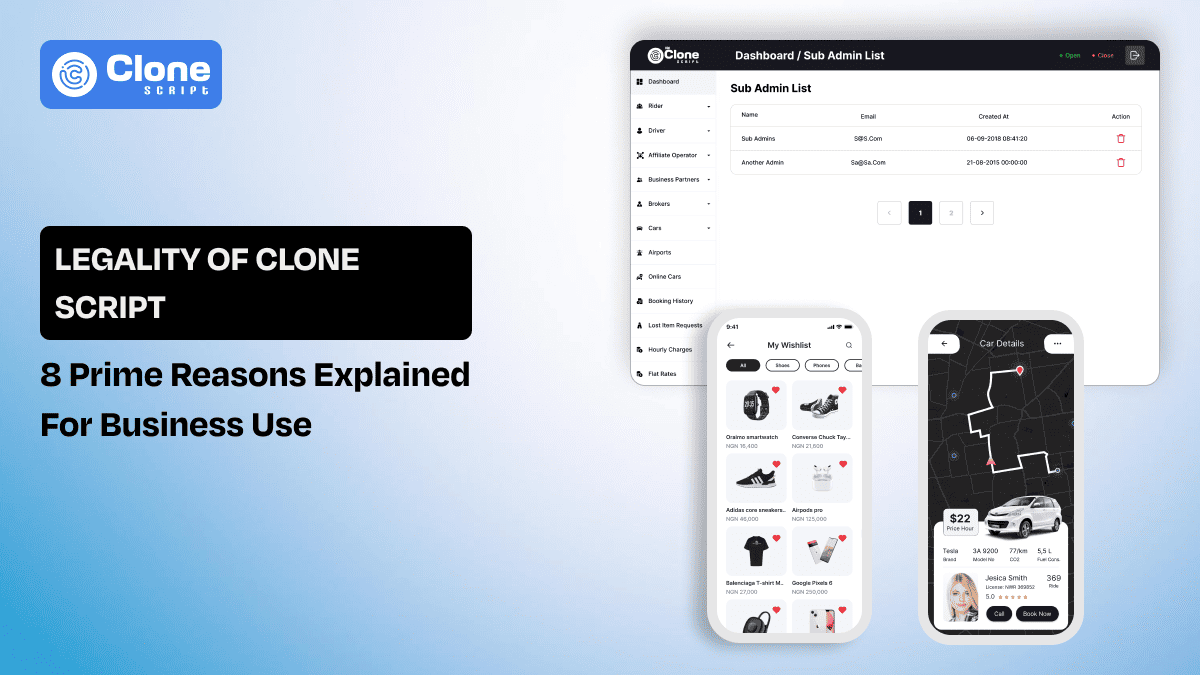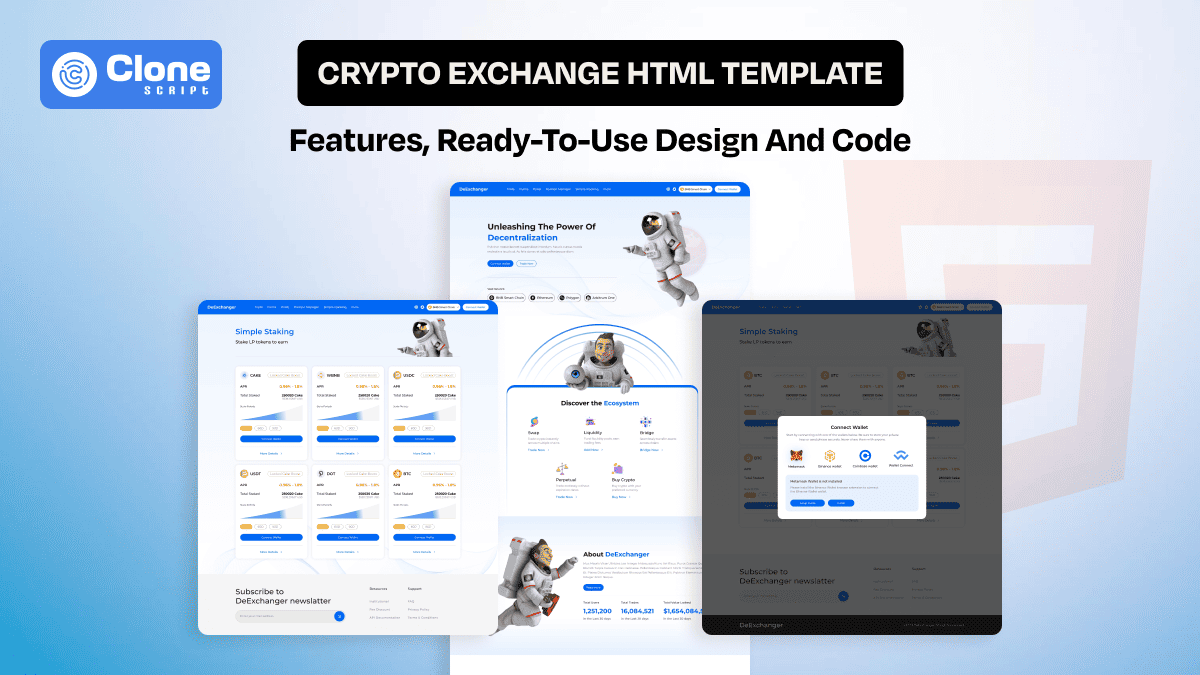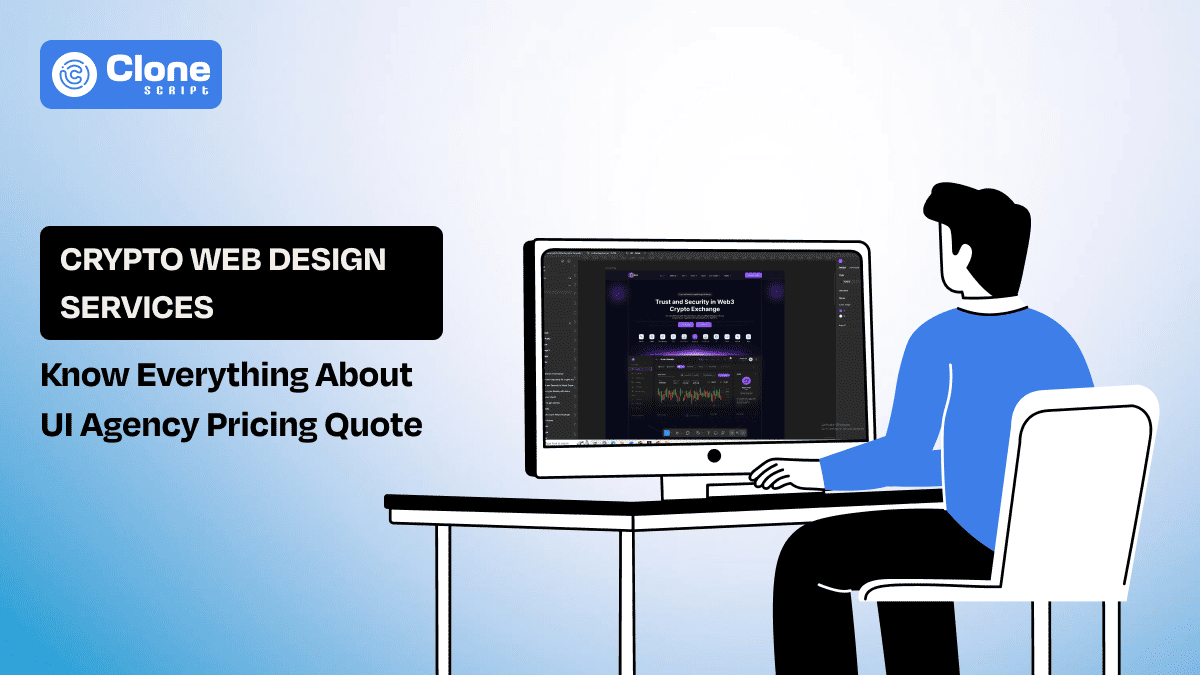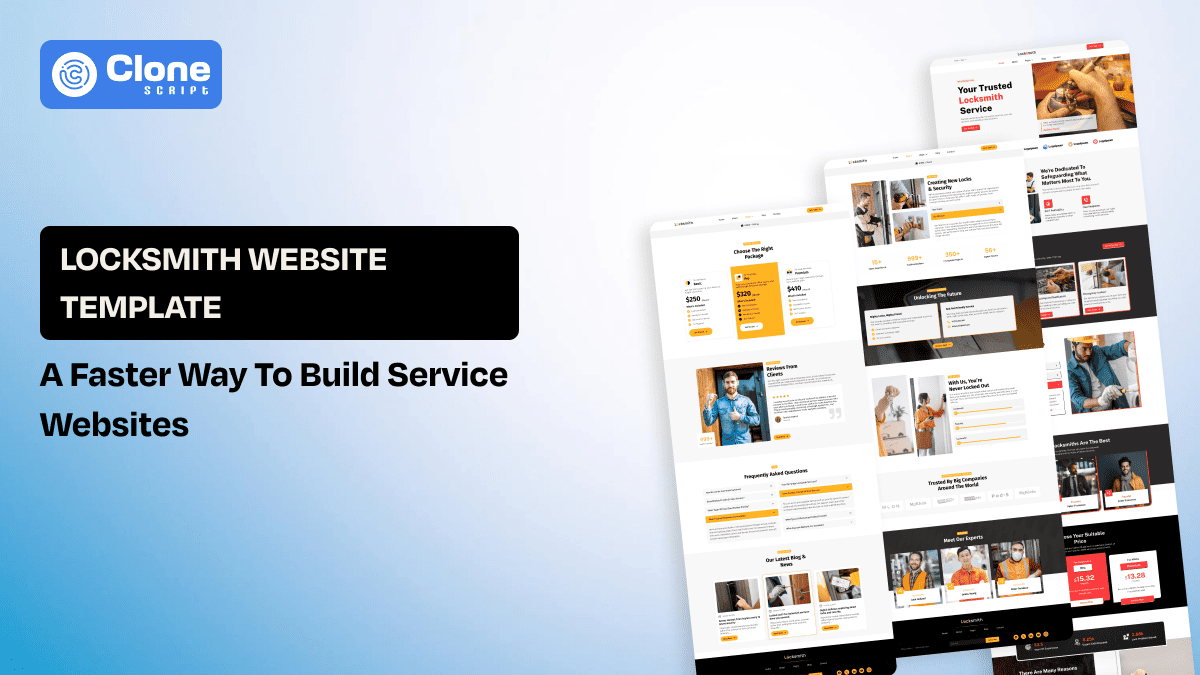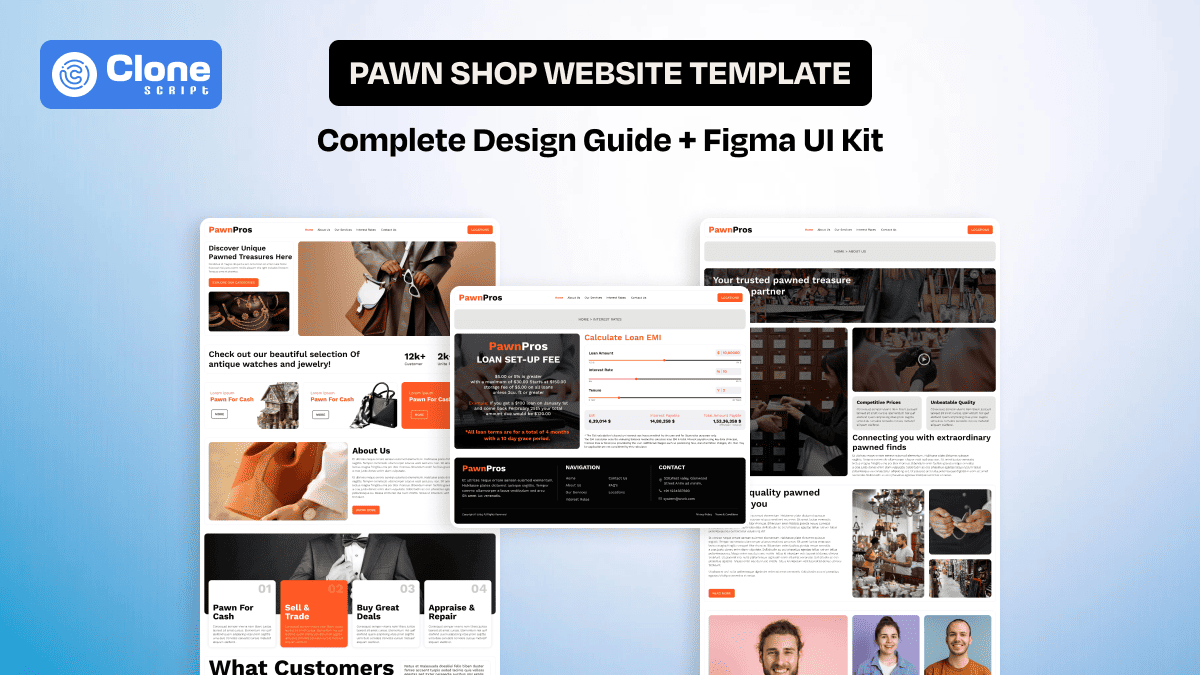How to Develop a Mobile Gambling App: Step-by-Step Process Explained
Every great venture starts with a bold question: “What if I could build something that people truly love and make real money from it?”
If you’ve ever spent time watching people enjoy casino games on their phones, betting on sports with a tap, or spinning the wheel in a mobile poker app, you already know one thing: the mobile gambling industry is successful.
But turning that insight into a live app is where most ideas stall. The question is how to build a gambling app.
The truth is, sports betting app development, for example, isn't just about hiring developers or copying what's already in the market. It’s about deeply understanding how the system works: from technology and licensing to game mechanics, security, monetization, and user psychology.
If you’re serious about the real-money gambling app development process, whether it’s for casino games, sports betting, or poker, this guide will show you what it takes to go from idea to live product, without costly missteps.
Step 1. Clarify Your App Vision Before Anything Else.
The first step to launch an online betting app, for example, is to understand what the game is trying to achieve.
The biggest mistake you can make is jumping into development without fully defining your product.
Many founders think the developers will "figure it out." But they won't. It’s your job to lead with clarity.
Ask yourself:
-
What type of gambling experience am I offering: slots, blackjack, poker, sports betting, something else?
-
Will my users play with real money, virtual tokens, or a mix of both?
-
Is this a solo game, or do I need real-time multiplayer mechanics?
-
How do I make it engaging, different, or stickier than what's already out there?
Once these questions are answered, everything else becomes simpler. You can now define your app’s structure, flow, monetization model, and development needs.
Pro Tip:
Sketch out your user journey using an AI-powered wireframing tool by giving an idea of what you want to do. Tools like UX Pilot.ai, UIzard, and MockFlow can design a rough draft of your gambling app screens, from opening the app to placing a bet to withdrawing a reward. This helps translate your vision into a clear roadmap.
Step 2. Choose a Business Model That Aligns with Your Goals.
In casino game app development, the business model works as a key element to drive a profit while maintaining high standards of user experience. In other words, your business model is more than a pricing strategy. It’s how your app will survive and grow.
Key Mobile Gambling Business Models:
Don’t know how gambling apps make money? Here are common, proven models used by famous betting apps.
-
Real-Money Gambling: Users deposit actual funds to play. You’ll need licenses and legal compliance in regulated markets. The reward? High ARPU (Average Revenue Per User).
-
Free-to-Play with In-App Purchases (IAPs): Users play with tokens or coins, but can purchase more to keep playing or unlock special perks. This model works globally and avoids strict regulation. It is a perfect choice for sports betting software app development powered by blockchain.
-
Hybrid Model: This model combines real-money betting with free-play options. It attracts both cautious users and high-stakes players. For example, football sports betting app development is suitable if you want to go with a hybrid revenue model.
-
Ads & Subscriptions: Use ads in free versions and offer a premium ad-free tier with bonuses. If you develop a horse racing betting app, then this type of option keeps users coming back for more.
Think deeply here. Your entire tech stack, UX, and legal approach will change depending on which model you choose.
Step 3. Understand the Legal Landscape Or Risk Everything.
This is where most new gambling app founders get it wrong. They thought, Can I develop a gambling app legally?
Gambling is a heavily regulated industry, and ignoring legal obligations can destroy your business overnight, even before it launches.
What You Need to Know:
-
Licensing: Do I need a license for a gambling app? If you're offering real-money gameplay, then the answer is yes. The most common jurisdictions are Malta, Curacao, the Isle of Man, and Gibraltar. Each has its own rules, costs, and requirements.
-
User Verification (KYC): You'll need to build KYC processes into your app, including identity verification, age checks, and sometimes income verification.
-
AML Compliance: Anti-money laundering policies must be in place to track transactions and prevent fraud.
-
Geo-Restrictions: Your app must restrict users in countries where gambling is illegal or unlicensed. This requires built-in geo-blocking.
Ignoring these legal requirements for gambling apps isn’t just risky. It’s dangerous. You can be banned from app stores, fined, or even face legal action.
Pro Tip:
Start by deciding whether you’ll operate in regulated markets or launch a free-to-play model first. The second is safer if you’re testing product-market fit.
Step 4. Map Out the Features You Need in a Gambling App.
Successful mobile gambling apps aren’t overloaded; they’re focused. You don’t need a dozen half-baked features. You need a few flawlessly executed ones that users feel value.
For example, in a poker app development, what kind of features are useful? Listed below:
-
Smooth User Registration (Google, Apple, Email, Social Login)
This feature builds instant trust and reduces entry frustration, especially for first-time users. Social login options improve user convenience and speed up the onboarding process. This makes it easier to start playing immediately.
-
In-App Wallet (for deposits, withdrawals, transaction history)
A secure and user-friendly wallet allows players to manage funds with confidence, supporting deposits, withdrawals, and real-time balance updates. Clear transaction history also builds transparency and compliance with regulatory standards.
-
Real-Time Game Logic (RNG, multiplayer sync)
Real-time gameplay and fair outcomes rely on Random Number Generators (RNG) and fast synchronization between users. These mechanics are useful for competitive multiplayer gaming and a trustworthy experience across all devices.
-
Payment Gateway Integration (Stripe, crypto wallets, Razorpay)
Integrated payment gateways allow players to fund their accounts quickly using trusted platforms like cards, UPI, or cryptocurrencies. Secure, instant payments increase conversion rates and reduce user drop-off.
-
Push Notifications (for daily bonuses, live games, reminders)
Well-timed push notifications help drive user engagement by reminding players of bonuses, promotions, or time-limited events. They also help re-engage inactive users and boost session frequency.
-
Bonus Systems (welcome gifts, loyalty rewards)
Reward systems like daily spins, referral bonuses, and loyalty tiers incentivize users to keep playing and build long-term retention. They’re essential for reducing churn and increasing lifetime value (LTV).
-
Leaderboard and Tournaments (for engagement)
Competitive leaderboards and live tournaments create excitement, social sharing, and repeat logins as players strive to beat others and win prizes. This adds a gamified layer that keeps players hooked.
-
24/7 Customer Support Chat
Live support builds trust by resolving user concerns instantly, especially when real money is involved. It also reduces app uninstalls due to frustration or confusion.
-
Advanced Security & Fraud Detection
Robust security features like encryption, bot detection, and fraud prevention protect both the app and its users. This builds a safe environment and ensures compliance with regulatory bodies.
Each of these features isn’t just a “nice-to-have.” They directly influence user retention, trust, and revenue. Prioritize what gives users a reason to stay.
Step 5. Design the App for Emotion, Ease, and Addictiveness
Sports betting app design has to shape emotions, habits, and trust in the palm of a hand. Keep note, you’re not just designing a game. But creating a virtual experience that players want.
In other words, try to improve sportsbook UX by understanding the player’s preferences, not forcing them to play as your choice.
The best gambling apps don’t just function; they feel alive.
Here’s how you do that using UX principles that work for and have the mobile betting app design features:
-
Dark Mode with Rich Visuals
Dark backgrounds with glowing visuals create a luxurious, casino-like atmosphere that feels more delightful and emotionally engaging. This also reduces eye strain, important for users who play at night or for extended sessions.
-
Animations for Wins/Losses
Visual cues like coin bursts or card flips when a user wins trigger dopamine spikes, the same chemical released during real casino wins. These animations not only create excitement but also strengthen emotional memory tied to gameplay.
-
Sticky Navigation
Important buttons like wallet, profile, and game lobby should always be within thumb’s reach. A sticky bottom nav bar engages, and users never get lost or frustrated, indicating the app feels intuitive and familiar.
-
Sound + Haptics
A small vibration on spin, card-dealing sounds, or jackpot chimes add a layer of tactile and auditory feedback. These sensory elements simulate a real-world casino vibe, keeping users more emotionally and physically engaged.
Pro Tip:
Before writing a single line of code, build your design in Figma or Adobe XD and test it with real users. Observing where they hesitate or get confused in your prototype will save you months of rework and user loss post-launch.
There is an option to pick a casino mobile game app UI kit in Figma that comes with pre-built designs.
Step 6. Choose the Right Game Development Company or Technology Partner
Building a gambling app is nothing like building a to-do list app or a photo filter tool. You're dealing with real money, real-time multiplayer, and real legal consequences. One bad choice in development can cost you thousands, if not your entire business.
That’s why your development partner must bring more than code. They need deep industry understanding, technical excellence, and the ability to think five steps ahead.
Here’s a list of things to look for in a sports betting app development company, if you want to make a platform like Bet365:
-
Previous Gambling App Experience
A team that’s already built casino, betting, or gambling apps will know the nuances: from regulatory loopholes to latency issues. Don’t let them learn on your dime; experience here equals speed, quality, and fewer legal headaches.
-
Deep Understanding of RNG and Fair Play Systems
Random Number Generator (RNG) logic isn’t just about fairness; it’s about trust. A credible team will know how to implement and certify game randomness to prevent fraud, avoid bans, and build user confidence.
-
Ability to Integrate Multiple Payment Gateways
Users from different countries expect different payment options. They want a credit card, crypto, PayPal, or a local wallet in-built app. Your developers must be fluent in payment integration and know how to handle currency conversions, fraud checks, and secure tokens.
-
Willingness to Offer Ongoing Support (Not Just Development)
A casino app is a living system. It needs updates, security patches, game improvements, and promotional changes. Choose a team that’s ready to stick with you post-launch instead of disappearing once the final invoice clears.
-
Strong Communication and Project Management
Even if your devs are brilliant, poor communication will ruin timelines, features, and your sanity. A great partner keeps you in the loop, explains technical decisions clearly, and helps you make smart choices at every stage.
Whether you’re looking for a top gambling app developer in Europe or prefer cost-effective development by contacting developers based in India, it is possible.
Need to Move Fast or Save Costs?
If you’re on a tighter budget or aiming for a faster time-to-market, consider using a mobile gambling app clone script. These pre-built solutions already include most of the core features: login, wallet, games, and admin panel. You can customize and launch in weeks instead of months.
Just make sure to vet the script thoroughly for code quality, scalability, and licensing. A good clone script can be a massive shortcut; a bad one can burn your budget twice over.
Step 7. Launching the App: Your First 30 Days Define the Future
Launching isn’t the end. It’s the beginning of your app’s real test in the market. Your first month determines whether users stay, spend, or disappear.
Here is a list of tasks to do to make your app available by letting players know:
-
Run pre-launch ads: Create hype through targeted ads and influencer outreach to attract first users. Early feedback helps polish the app before full-scale promotion.
-
Offer welcome bonuses and referral rewards: Incentivize users with free credits, spins, or cashbacks when they join or invite friends. This builds virality and gives users a reason to return.
-
Engage through push notifications and email drips: Automate your communication with value-driven messages, not spam. Use push to remind, reward, or re-engage users at the right moment.
-
Actively respond to feedback and bug reports: Show users you’re listening by fixing bugs fast and thanking them for suggestions. This builds trust and improves app ratings organically.
-
Monitor retention rates, session time, and conversion: Track how long users play, how often they return, and when they pay. These metrics reveal exactly where your app succeeds or leaks revenue.
Use these tools to track growth smartly:
-
Firebase Analytics: Track user behavior in real-time and trigger alerts for major events like churn or conversion drops.
-
Mixpanel: Visualize funnels, retention curves, and cohort performance to optimize user experience and in-app rewards.
-
Appsflyer: Measure ad campaign performance and attribute installs to the right sources for better ROI on your marketing spend.
Understand the time frame, Cost, and Tech Stack involved in Gambling App Development.
Building a mobile gambling app isn’t cheap, but it’s one of the few investments that can scale fast if executed well. Knowing the real-world budget and timeline helps you plan smarter and avoid painful surprises.
Timeline: How long does it take to build an app?
-
Prototype + UI/UX: 4–6 weeks
This stage includes research, wireframes, and interactive design prototypes using tools like Figma. Testing with early users ensures your layout flows smoothly before coding begins.
-
Development: 3–5 months
Frontend and backend coding, including game logic, wallet systems, and multiplayer, happens here. Timelines vary based on the number of games, complexity, and team size.
-
Testing & Launch: 1 month
Final app testing across platforms, plus legal verifications, and app store approvals. This is also when you fine-tune based on last-minute feedback before going live.
So, the answer to how long it takes to build a casino app for iOS and Android depends on the complexity and features involved. Usually, within 1 month, the app can be ready to go live.
Budget: How much does it cost to develop a betting app?
-
Basic Free-to-Play App: $20,000–$30,000*
If you’re not dealing with real money, you can build a simpler game experience with fewer compliance costs. Ideal for MVPs or social casino apps.
-
Real-Money Gambling App: $50,000–$150,000+*
This includes everything from secure payments to RNG certification and legal licensing. More cost upfront, but also more opportunity for serious revenue.
* The costs mentioned for the casino and different types of betting applications are estimated.
Best Tech Stack: What Powers a Winning Casino App?
-
Front-end: Flutter, Unity
For front-end mobile app development for casino games, Flutter remains a cost-effective and prioritized choice for developers. Why? Because it’s great for rapid cross-platform development, while Unity is perfect for advanced animation and 3D-style casino games.
-
Back-end: Node.js, Firebase, MongoDB
In casino app development, a back-end integration is very important to manage real-time syncing, fast performance, and scalable infrastructure for multiplayer and payment services.
-
Payments: Stripe, PayPal, Razorpay, BitPay
Payment gateway interaction offers users flexibility to deposit via cards, wallets, or crypto, whichever suits your region and legal model best.
-
Database: PostgreSQL, Redis
In online betting, reliable data management tools power user accounts, game logic, transaction records, and leaderboard rankings.
The best tech stack for gambling app development, including front-end and back-end development, along with payment and database integration, depends on the complexity involved.
Conclusion
The mobile gambling market is transforming the way people play, interact, and win. But success doesn’t come from copying the surface of popular apps. It comes from building a product that’s legal, secure, emotionally engaging, and worth users’ time and money.
From idea validation and feature mapping to design psychology and post-launch tracking, you now know every key step in the process. The real challenge is execution. Do it right, and you’re not just launching an app. You’re creating a revenue-generating machine that can scale across markets.
Ready to Build Your Gambling App?
Whether you're starting from scratch or want a faster, smarter way to launch, we can help.
Use a customizable app clone script made in Flutter from All Clone Script or hire a development partner that knows this space inside-out. Contact us.
Get expert help. Launch faster. Avoid mistakes.
Let’s build something users love and competitors will like to copy.
 BTC - Bitcoin
BTC - Bitcoin
 USDTERC20 - USDT ERC20
USDTERC20 - USDT ERC20
 ETH - Ethereum
ETH - Ethereum
 BNB - Binance
BNB - Binance
 BCH - Bitcoin Cash
BCH - Bitcoin Cash
 DOGE - Dogecoin
DOGE - Dogecoin
 TRX - TRON
TRX - TRON
 USDTTRC20 - USD TRC20
USDTTRC20 - USD TRC20
 LTC - LiteCoin
LTC - LiteCoin

